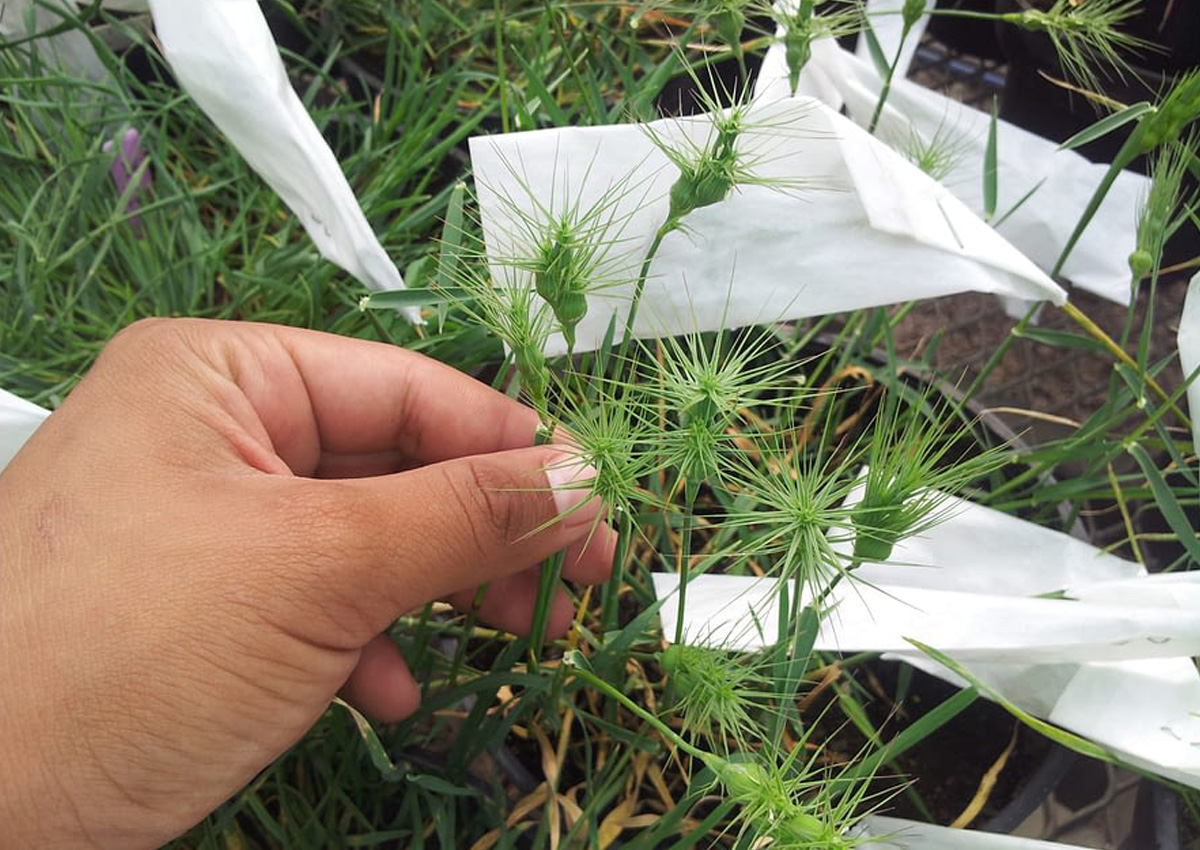
International Collaboration Brings Wild Wheat's Untapped Diversity into Elite Lines
December 9, 2021| |
An international collaboration involving 15 research institutes from eight countries has optimized efforts to introduce beneficial traits from wild wheat accessions in genebanks into existing wheat varieties.
The research led by Sukhwinder Singh of the International Maize and Wheat Improvement Center (CIMMYT) as part of the Seeds of Discovery project extends many potential benefits to national breeding programs, including improved wheat varieties better equipped to thrive in changing environmental conditions. The findings build from research undertaken through the Seeds of Discovery project, which genetically characterized nearly 80,000 samples of wheat from the seed banks of CIMMYT and the International Center for Agricultural Research in the Dry Areas (ICARDA).
The team performed a large meta-survey of wild wheat varieties from genebanks to create a catalog of improved traits. They then developed a strategic three-way crossing method among 366 genebank accessions and the best historical elite varieties to reduce the time between the original introduction and deployment of an improved variety.
The diverse new germplasm is being tested in major wheat-producing areas, including India, Kenya, Mexico, and Pakistan. In Mexico, many of the lines showed increased resistance to abiotic stresses; many lines tested in Pakistan showed increased disease resistance; and in India, many tested lines are now part of the national cultivar release system. Overall, national breeding programs have adopted 95 lines for their targeted breeding programs and seven lines are currently undergoing varietal trials.
For more details, read the article on the CIMMYT website.
| |
You might also like:
- Brazil Approves Drought Tolerant HB4® Wheat
- Genome-Edited Wheat Field Trial Gets UK Government Approval
- Argentina First in the World to Approve Drought Tolerant HB4® Wheat
Biotech Updates is a weekly newsletter of ISAAA, a not-for-profit organization. It is distributed for free to over 22,000 subscribers worldwide to inform them about the key developments in biosciences, especially in biotechnology. Your support will help us in our mission to feed the world with knowledge. You can help by donating as little as $10.
-
See more articles:
-
News from Around the World
- USDA FAS Reports Biotech Updates in Pakistan and Korea
- International Collaboration Brings Wild Wheat's Untapped Diversity into Elite Lines
- Global Database Reveals Humans are Biggest Driver of Plant Homogenization
- Thailand Presents Impressive Line-Up of Biotech Crop R&D During ISAAA's Latest Webinar
- FSANZ Opens Call for Comments on GM Wheat Product Importation
- ISAAA to Release Primer on Genome Editing
- Microbiome Study Provides Strategies for Healthy and Climate-Resistant Fruit and Vegetables
-
Research Highlights
- Suppressing Jasmonate Signaling Attenuation Confers Stress Tolerance in Arabidopsis
-
Plant
- University of Texas Scientists Discover Potential New Gene Editing Tools
- Scientists Use TALENs to Edit Tuna
- Researchers Edit Genomes of Microbes Growing in a Community of Different Species
-
Health
- Omicron Variant Could Weaken COVID Vaccine Protection
-
Read the latest: - Biotech Updates (February 11, 2026)
- Gene Editing Supplement (January 28, 2026)
- Gene Drive Supplement (February 22, 2023)
-
Subscribe to BU: - Share
- Tweet

